Partners in Need
By K. K. Shahid | Newsbeat National | Published 6 years ago
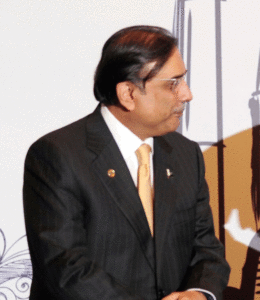
The Pakistan Muslim League-Nawaz (PML-N) and the Pakistan Peoples’ Party (PPP) came together last month to spearhead an opposition alliance 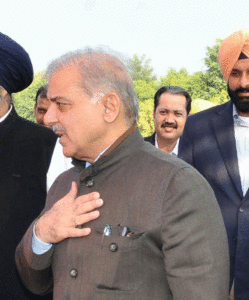 against the government. The decision to join hands and plan a combined strategy was taken in a joint session of the opposition parties in Parliament House on January 15, and was attended by PML-N President Shehbaz Sharif and PPP co-chairpersons, Asif Ali Zardari and Bilawal Bhutto Zardari.
against the government. The decision to join hands and plan a combined strategy was taken in a joint session of the opposition parties in Parliament House on January 15, and was attended by PML-N President Shehbaz Sharif and PPP co-chairpersons, Asif Ali Zardari and Bilawal Bhutto Zardari.
Following the meeting, Shehbaz Sharif and Bilawal Bhutto Zardari said while underlining the failures of the government, that the opposition had united on national policy-making. They maintained that the greatest failure of the PTI government has been on the economy front, underlining the price hikes of basic commodities, including gas and electricity in recent months.
Shehbaz Sharif asked for transparency with regard to the Mohmand Dam and demanded fresh bidding for the project, while Bilawal Bhutto Zardari said that given the current political climate, the two major parties would revisit the Charter of Democracy.
The Charter of Democracy had been signed in 2006 by the then chiefs of the PML-N and PPP, Nawaz Sharif and Benazir Bhutto, during the rule of military chief Pervez Musharraf.
The charter was ostensibly designed to end that dictatorship 13 years ago. However, the Pakistan Tehrik-e-Insaf (PTI) interpreted it as an agreement formed between the PML-N and the PPP to maintain a duopoly over the federal government, while being a ‘friendly opposition’ during each other’s rule.
These claims had been echoed by PTI chief Imran Khan in the years leading up to his party’s triumph in last year’s general elections, alleging that all it amounted to was an endorsement of the two parties taking ‘turns’ in power and thereby facilitating their corrupt practices. Now this latest bid to renew the Charter of Democracy is being interpreted by the ruling PTI as an alliance forged by the PML-N and the PPP to evade the government’s ‘accountability drive.’
Both PPP co-chairpersons, along with other party leaders, were placed on the Exit Control List (ECL) in December after a Joint Investigation Team (JIT) formed by the Supreme Court named them in a fake accounts case. In January, the SC urged the National Accountability Bureau (NAB) to wrap up the investigation into the case in two months.
In October, Shehbaz Sharif was arrested by NAB for the alleged misappropriation of funds in the Ashiana Housing Scheme case. In December, NAB arrested senior PML-N leader Saad Rafique following an inquiry into the Paragon Housing Society scam.
The leaders of the PML-N and the PPP maintain that the government’s much-touted accountability drive is only targeting the opposition parties. The example of Jehangir Tareen is cited, who despite being disqualified by the Supreme Court, is actively participating in government meetings and running the party machinery.
Investigations are also ongoing against senior PTI minister Aleem Khan in an offshore company case, but that notwithstanding, he is fully involved in the functioning of the Punjab government. Meanwhile, fingers have been pointed at PM Imran Khan’s sister, Aleema Khan, who it is alleged, owns hundreds of millions of rupees worth of undeclared property in the US and UAE.
“There are ongoing investigations against Aleem Khan, Pervaiz Khattak and Aleema Khan. Imran Khan had said “do nahi, aik Pakistan” [One, not two Pakistans], but there has been no action against his own sister. Meanwhile, Faryal Talpur’s name has been made controversial,” contended PPP’s Nadir Gabol, maintaining that the alliance between the opposition parties is principled.
“[The PPP] wasn’t elected [to rule the country] because of the support of aliens. It was the masses’ support that elected us. That is why we completed our tenure,” Gabol added.
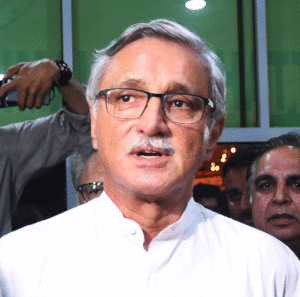
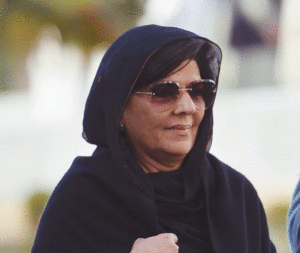 While this purported selective accountability has been criticised by the PML-N and the PPP, the senior party leaders maintain that their current alliance is based purely on concerns regarding the current state of the nation. And this has prompted both Asif Ali Zardari and Shehbaz Sharif to predict that the PTI government won’t be able to complete its five-year term.
While this purported selective accountability has been criticised by the PML-N and the PPP, the senior party leaders maintain that their current alliance is based purely on concerns regarding the current state of the nation. And this has prompted both Asif Ali Zardari and Shehbaz Sharif to predict that the PTI government won’t be able to complete its five-year term.
“Given the PTI government’s performance, it’s obvious why it is hard to believe they will complete their five year term. What is uniting the PML-N and the PPP is the incompetence of the PTI government. If there is a realisation [of past mistakes] to ensure that we can work towards improving things, there will be nothing better than this,” said senior PML-N leader Siddique-ul-Farooq, referring to the proposed reconstitution of the Charter of Democracy.
The ruling PTI reiterates that the foundation of the current economic crisis was laid during the PML-N government. “The economic numbers that we’re seeing right now are a result of what the previous government did. We’ve maintained for a long time that [the PML-N and the PPP] are two sides of the same coin, and have been taking turns ruling the country,” said PTI leader Nadeem Qureshi.
“It’s ironic that those who have brought Pakistan to this financial mess through their corrupt practices have now become experts on the economy. They call themselves the custodians of democracy – is it a democratic practice to help conceal each other’s malpractices?” he asked.
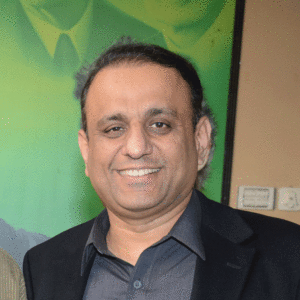 The PTI leadership also points towards statements made by the PPP and PML-N against one another, especially Shehbaz Sharif and Asif Ali Zardari, who are now at the helm of the opposition alliance. The leadership of the PML-N and the PPP is quick to respond, by pointing out that the PTI’s current allies, the Pakistan Muslim League-Quaid (PML-Q) in Punjab and the Muttahida Qaumi Movement (MQM) at the centre, were parties that the Tehreek-e-Insaf had earlier vocally opposed.
The PTI leadership also points towards statements made by the PPP and PML-N against one another, especially Shehbaz Sharif and Asif Ali Zardari, who are now at the helm of the opposition alliance. The leadership of the PML-N and the PPP is quick to respond, by pointing out that the PTI’s current allies, the Pakistan Muslim League-Quaid (PML-Q) in Punjab and the Muttahida Qaumi Movement (MQM) at the centre, were parties that the Tehreek-e-Insaf had earlier vocally opposed.
“It’s natural for rival parties to make jibes against one another. It’s probably harsher here [in Pakistan] because our [political] environment is such,” said PML-N’s Senator Javed Abbasi. “The current alliance isn’t because we want to contest elections together or that we want to take over the government. It’s purely based on the conditions that the country is in right now,” he added.
PPP leader Chaudhry Manzoor Ahmed underlines the threats to democracy posed by the PTI government. “There is an effort to wrap up the parliamentary system. There is talk of bringing in the presidential system. There are attacks on the [Constitution’s] 18th Amendment,” he maintained.
Chaudhry Manzoor Ahmed believes that the PML-N’s position on military courts could be crucial for the future of the two parties’ alliance. “The first test will be the military courts. Our perspective is that they were created for one year, in accordance with the National Action Plan, following which alternative courts were to be created,” he said.
The PPP co-chairpersons reiterated that they would not support any extension of the military courts. The same has also been echoed by PML-N leader and former PM, Shahid Khaqan Abbasi.
The two parties have found further common ground with regard to the Sahiwal incident as well, demanding accountability for the culprits responsible for the killing of the innocent family.
And if the intent behind the alliance was needed to be seen, the electoral manifestation of it was in the run-up to the by-elections for Mansehra’s PK-30 seat, scheduled for February 22, where the PPP has withdrawn its candidate in support of the PML-N.


